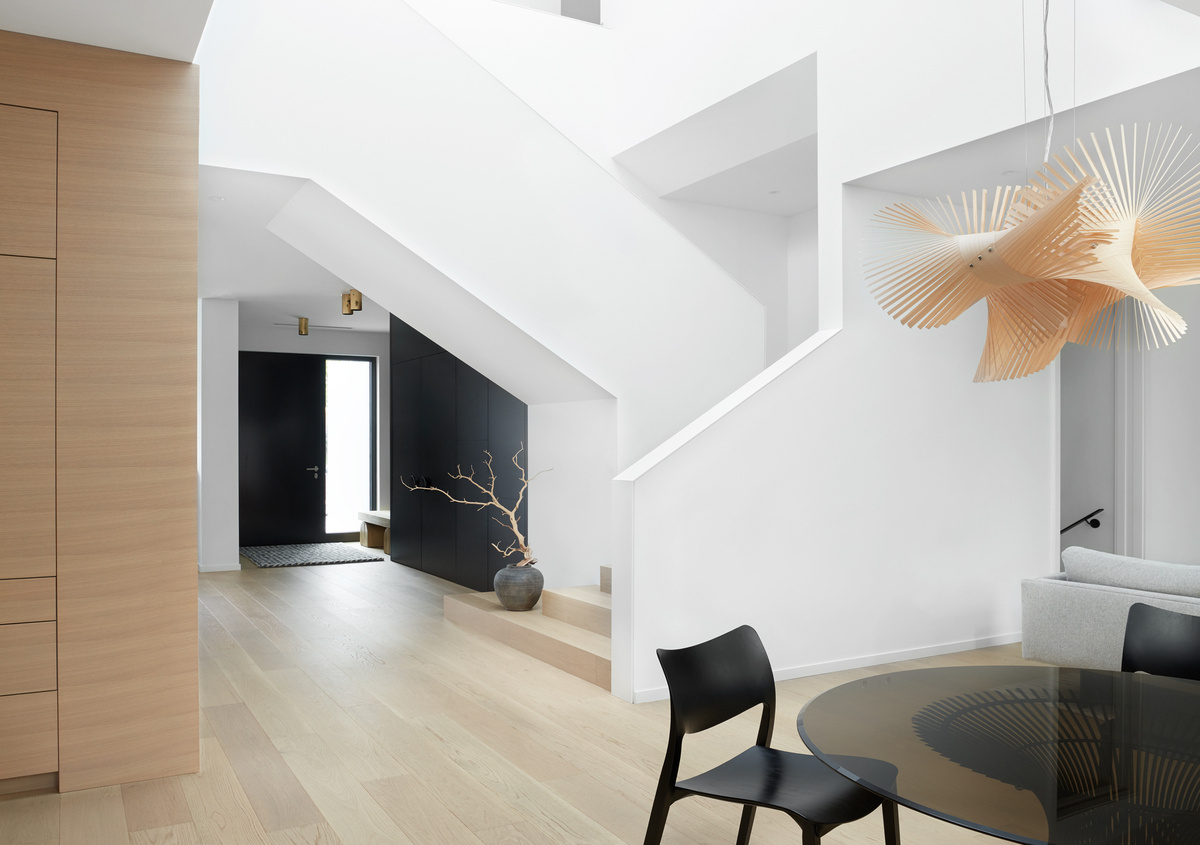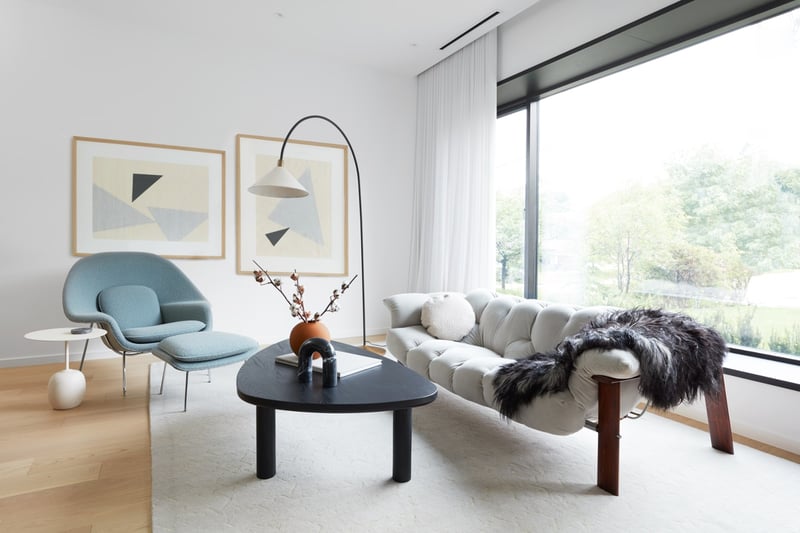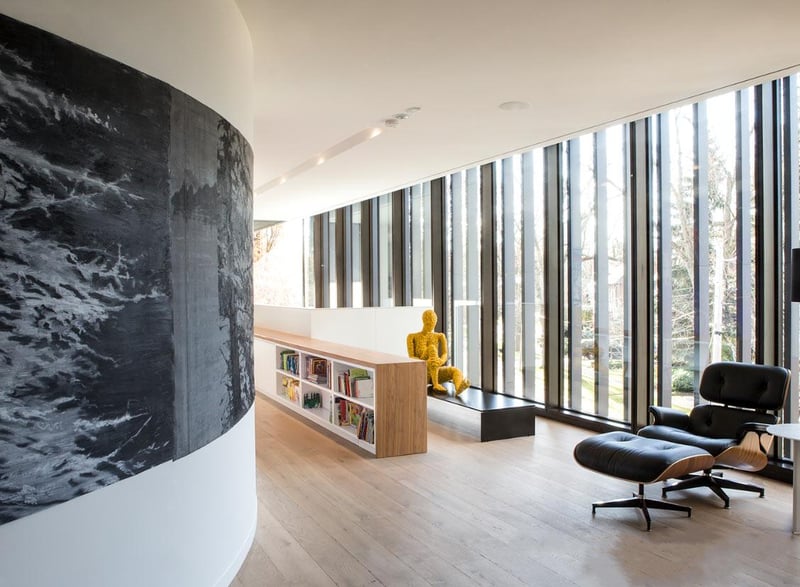
International Design: Bringing Global Influence to Your Toronto Estate
Toronto brims with cultural richness, where influences from around the world shape its architecture, cuisine, and way of life. This diversity should be reflected in the homes of those who appreciate fine design, craftsmanship, and the stories that materials and objects carry with them. Incorporating international design is a thoughtful process of blending influences, ensuring that materials, layouts, and craftsmanship work harmoniously with the home’s architecture and Toronto’s unique climate. From sourcing universal quality, such as handcrafted European cabinetry, to integrating Japanese-inspired minimalism, the key is to create a space that feels personal, curated, and timeless.
Table of Contents
- Key International Design Styles and Their Application in Toronto Homes
- Material Sourcing and Authenticity: What Works in Toronto’s Climate
- Showcasing Art, Collectibles, and Heirlooms in a Home
- High-end Design is Ultimately Placeless

Key International Design Styles and Their Application in Toronto Homes
What makes a globally inspired home truly successful is its ability to merge these influences in a way that feels considered rather than thematic. By working with architects and craftspeople who understand the nuances of these styles, it is possible to create a home that reflects a broad design perspective while remaining cohesive and functional.
European Sophistication
European homes are known for their refined craftsmanship and historical depth. French interiors, for example, balance effortless elegance with warmth, often featuring intricate mouldings, parquet wood flooring, and oversized French windows that frame the outdoors as part of the design.
The grand symmetry of Georgian and Victorian homes offers another layer of sophistication, with high ceilings, statement staircases, and handcrafted millwork that lend a sense of permanence and tradition. Meanwhile, Scandinavian and Nordic influences favour clean lines, functional simplicity, and natural materials, creating a modern yet inviting aesthetic.

Asian Balance and Minimalism
Asian design offers an entirely different perspective, emphasizing balance, restraint, and the connection between indoors and out. Japanese interiors, particularly those inspired by Japandi style, prioritize organic textures, neutral palettes, and a sense of calm through minimalism. Every material serves a purpose, from light-toned wood to textured stone, creating spaces that feel both contemporary and deeply rooted in tradition.

Chinese influences, by contrast, lean toward symmetry and contrast, with dark wood furniture, lacquer finishes, and intricate detailing creating a dramatic yet harmonious composition.
Middle Eastern and North African Elegance
Middle Eastern and North African design traditions introduce rich textures and bold architectural statements. Modern Moroccan interiors, for example, use hand-cut tilework, carved wood screens, and arched doorways to create an interplay of light and shadow.
Middle Eastern homes often incorporate grand spaces with layered textiles, statement lighting, and intricate patterns that create a sense of warmth and refinement. These elements can be introduced selectively, whether through architectural features or carefully curated materials, to bring a sense of timeless luxury.
Material Sourcing and Authenticity: What Works in Toronto’s Climate
By carefully selecting materials that balance authenticity with function, it is possible to create a home that honours global influences without compromising comfort, durability, or efficiency.
Selecting the Right Materials
One of the most compelling aspects of international design is using materials with deep cultural and artisanal significance. Italian marble, French oak flooring, Moroccan zellige tile, and Japanese shou sugi ban wood all carry a sense of history and craftsmanship. However, sourcing these materials requires an understanding of how they will perform in Toronto’s climate and whether they meet Canadian building standards.

Not every material that thrives in a Mediterranean villa or a historic Japanese home is suited to Canadian winters. A handcrafted wooden door that looks stunning in a Tuscan farmhouse may warp or crack when exposed to Toronto’s temperature fluctuations. Similarly, floor-to-ceiling glass walls, common in warm climates, require advanced engineering and high-performance glazing to meet insulation standards here.
Meeting Canadian Standards
Regulations also play a role. Products used in construction, whether windows, doors, or even certain finishes, must meet CSA (Canadian Standards Association) approval. While the global supply chain has made it easier to source high-end European cabinetry, lighting, and cladding materials, it is crucial to work with suppliers who understand the necessary approvals and modifications required to integrate these products seamlessly into a Toronto home.
Showcasing Art, Collectibles, and Heirlooms in a Home
Thoughtful Display Design
For many, international design is not just about materials and architecture—it is also about curating a space that reflects a lifetime of travel, culture, and personal history. That same appreciation for culture and connection often extends into lifestyle choices, like joining the top social and private clubs in Toronto, where community and tradition meet modern sophistication.
Art, textiles, sculpture, and heirlooms collected from around the world deserve to be displayed with the same level of thought and craftsmanship that went into designing the home itself. Architectural niches, floating shelving, and custom-built cabinetry can create dedicated spaces for treasured objects, allowing them to be appreciated as part of the home’s overall aesthetic.

The Importance of Lighting
Lighting plays a crucial role in showcasing these pieces. The approach is similar to museum or gallery design, where specialized lighting consultants ensure that artwork and collectibles are illuminated in a way that enhances their presence without causing damage. Soft, directional lighting, hidden fixtures, and dimmable options can highlight sculptures, paintings, or antique furniture without overwhelming the space.
Collaborating with Experts
Creating a home that functions as a personal gallery requires a collaborative approach. Working with museum-grade lighting consultants and expert millworkers ensures that every object is displayed to its full potential while maintaining a seamless integration into the home’s overall design. The right expertise ensures that each piece is both protected and perfectly presented.
High-end Design is Ultimately Placeless
Great design transcends geography. Walk into a meticulously crafted kitchen in Toronto, Venice, or Tokyo, and you may not immediately know where you are. The materials, the layout, the attention to detail—all of it speaks to a universal level of craftsmanship. At the highest level, design is not about imitating a place but about distilling the best ideas around the world into a space that feels timeless and deeply personal.
A Parisian apartment may feature German-engineered cabinetry, Italian marble, and Scandinavian furniture just as easily as a Toronto home might. What matters is not the origin of the materials but how they are composed. The best design takes cues from multiple traditions without feeling bound to any single one.
Much of this is due to the globalization of high-end architecture and interiors. The same design houses creating bespoke kitchens in London also work in New York and Dubai. The best Italian stone suppliers ship their marble worldwide. High-performance windows, handcrafted millwork, and precision-engineered fixtures are sourced internationally and seamlessly integrated into homes, making location secondary to quality.
Thoughtful Renovations and Custom Homes, Perfected for Toronto Living
Bringing international influence into your home demands expert craftsmanship, precise execution, and a deep understanding of how global materials and design elements work within Toronto’s unique architectural and climatic context. SevernWoods collaborates with the finest architects, artisans, and specialists to create homes that effortlessly integrate world-class design with local expertise. Contact us today to start the conversation.

